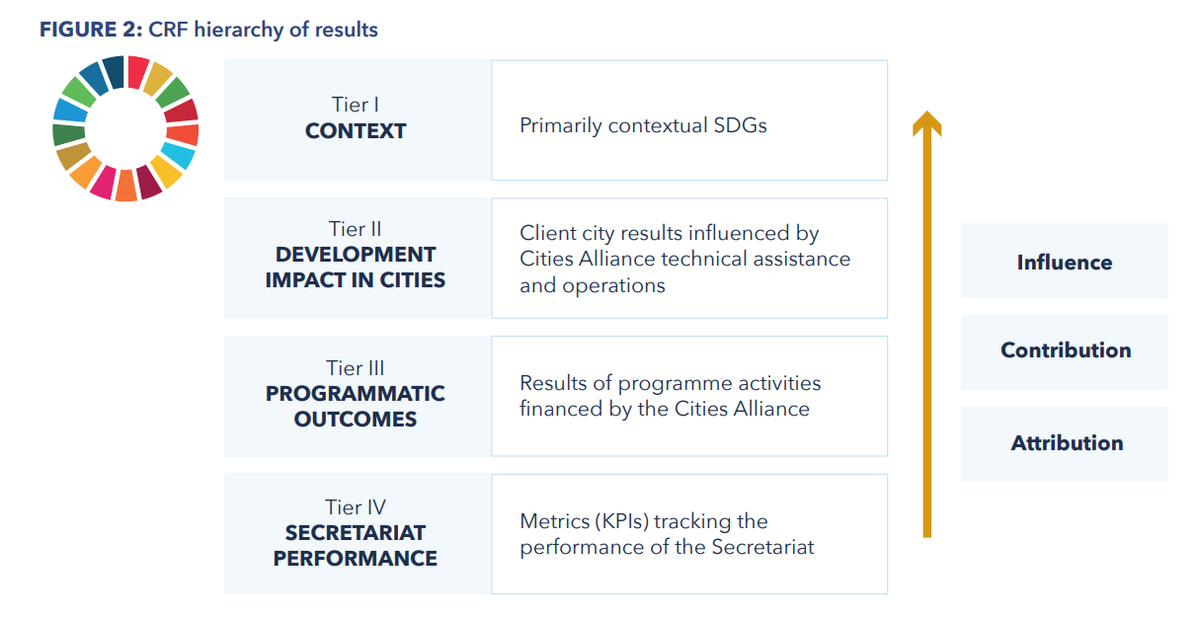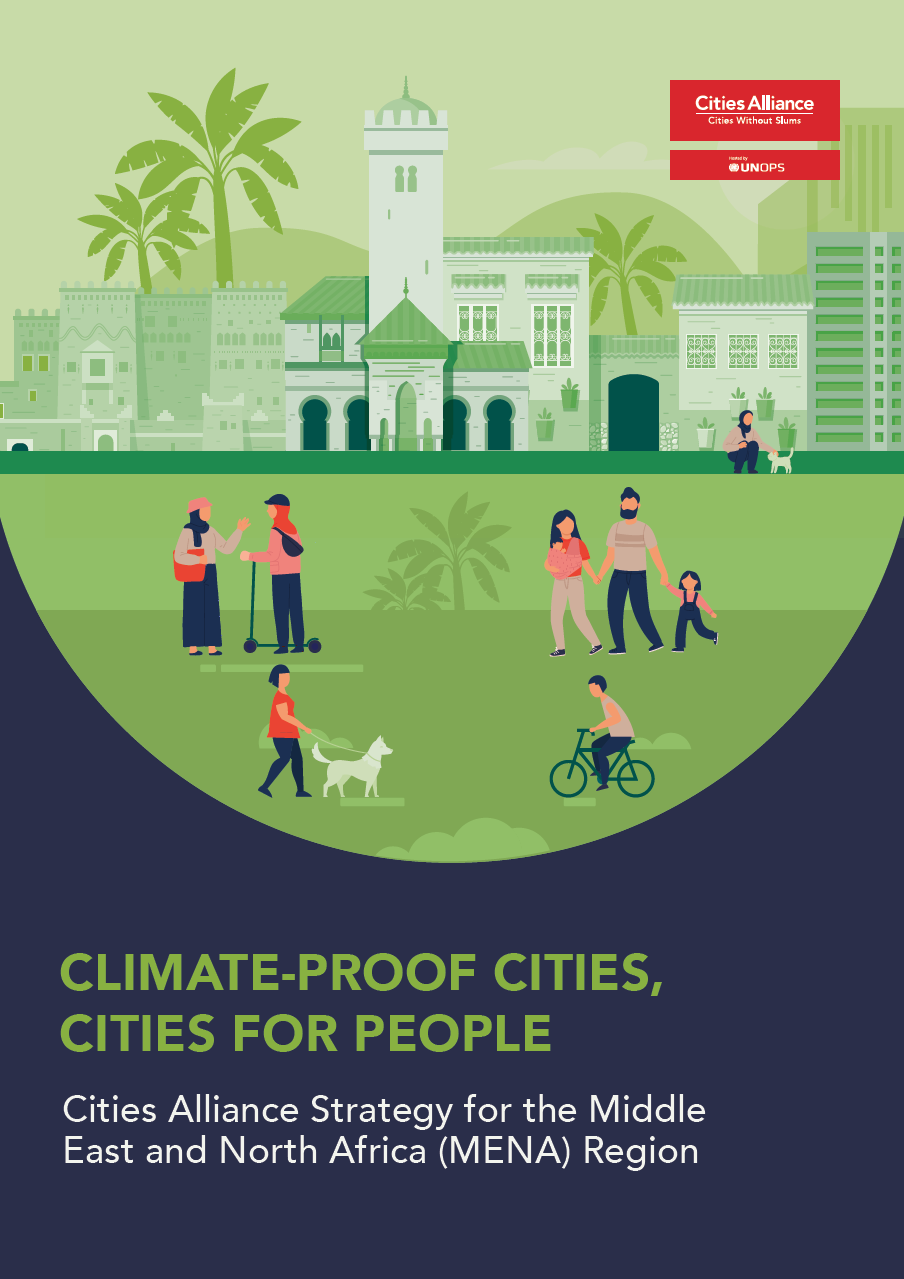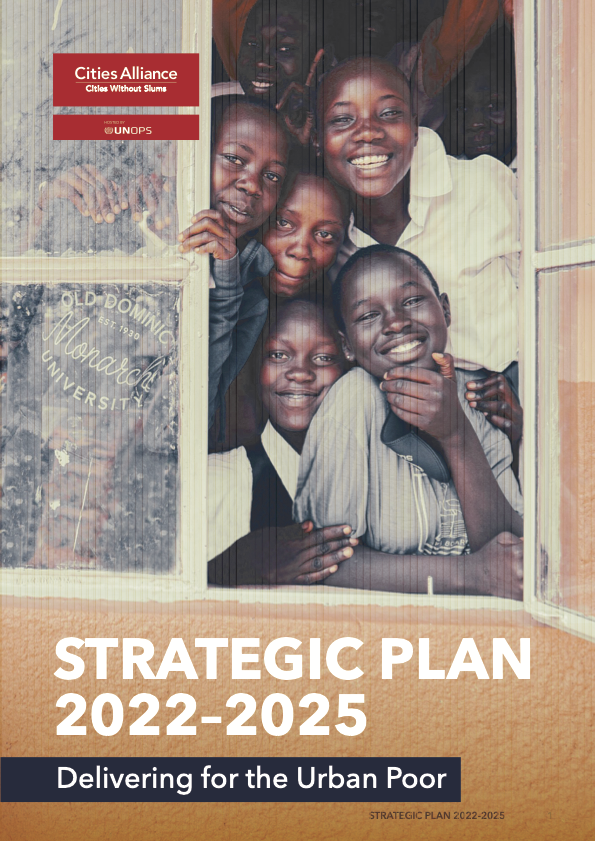- Who We Are
- How We Work
- Regional / Country Initiatives
- Legacy
- Core Themes
- Working Groups
- Portfolio & Results
- Newsroom
- Resources
Cities Alliance Corporate Results Framework


As per its Charter, the main objective of Cities Alliance is to reduce urban poverty and promote the role of cities in sustainable development. To assess the extent to which its efforts and those of partners are making progress toward that objective, Cities Alliance monitors, evaluates and publicly reports its activities within an agreed-upon corporate performance and results framework and through a dedicated results-based management system. Cities Alliance has utilised a tiered results framework to manage and track progress towards strategic objectives and development results at the corporate level since 2013.
The Cities Alliance Corporate Results Framework (CRF) follows international standards and practices for results-based management, maps the Cities Alliance contribution to the Sustainable Development Goals, and defines organisation-wide standards for baselines, milestones, targets, data sources, as well as the tools and frequency for data collection. Results are reported annually through the Corporate Scorecard (CSC).
This CRF articulates the pathways of change from Secretariat outputs to longer-term developmental impact and is aligned to the organisation’s mission, vision, strategic objectives, ambitious but achievable performance targets, thematic objectives, and the estimated expenditure to deliver the plan.

The 33 indicators which constitute the CRF have been developed to manage the implementation of the 2022–2025 Strategic Plan. They allow for a degree of aggregation across the portfolio and are only a small fraction of the metrics utilised by the Cities Alliance.
Other elements of the Cities Alliance Monitoring, Evaluation and Learning (MEL) system include:
- Project and programme MEL plans, which include results frameworks, indicators, targets, data quality assessments, and learning plans that are highly specific to the sector, context, and funder.
- Cities Alliance programme and project MEL systems increasingly incorporate stakeholder feedback mechanisms and qualitative, participatory, and complexity-aware approaches to strengthen local ownership, learning, adaptive management, and results.
- External and internal evaluations commissioned by the Cities Alliance to assess programme, project, and thematic performance as well as results and learning. They also provide supplementary evidence and context to interpret the CRF results.


